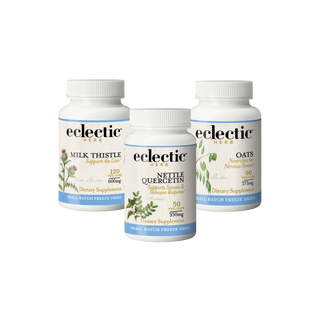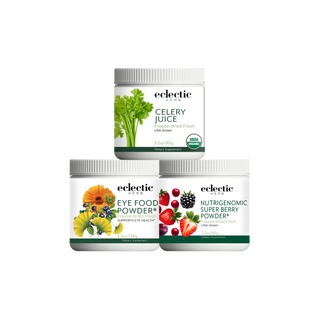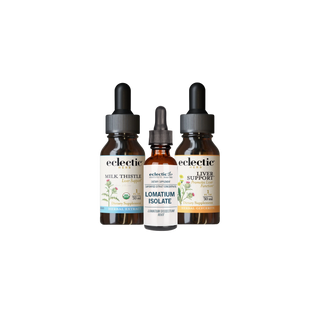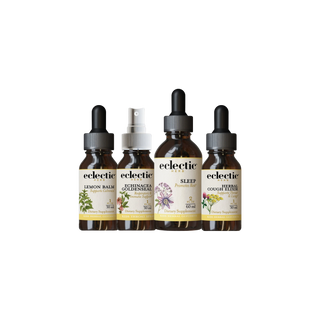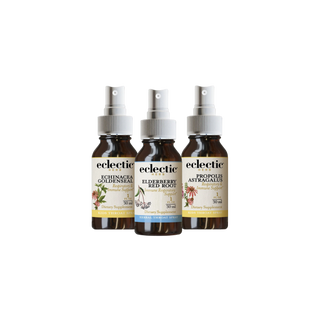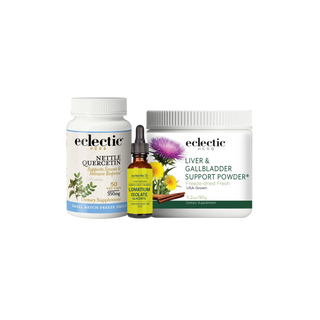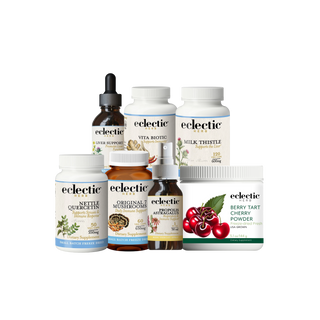
Valentine’s Day is not just about celebrating romantic love; it’s also an opportunity to focus on your heart—physically, emotionally, and spiritually. In today’s fast-paced world, heart health is more crucial than ever. By adopting a holistic approach that includes nutritious herbs like hawthorn, garlic, turmeric, and beets, along with emotional and spiritual care, you can nurture your most vital organ and lead a healthier, happier life.
Why Focus on Heart Health for Valentine's Day?
Valentine's Day is synonymous with the heart, making it the perfect time to think about how we care for this essential organ. The heart does the vital work of keeping blood circulating through our bodies, delivering oxygen and nutrients to every cell. Just as we express love and care towards others, our hearts deserve the same level of attention and care every day.
Heart health is essential for overall well-being, and while the statistics about cardiovascular issues are sobering, the good news is that small lifestyle adjustments can make a significant impact. Let’s start by exploring how herbs can be part of your journey toward a stronger, healthier heart.

Herbs for a Healthy Heart
Herbs have been used for centuries to promote heart health and overall well-being. They offer natural compounds that support cardiovascular function, encourage balanced circulation, and contribute to your heart's resilience. Below are some of the most effective herbs for nurturing your heart.
Hawthorn Berry
Hawthorn has a long history as a supportive herb for the heart, celebrated in both traditional and modern herbal practices. Its active compounds, including flavonoids and oligomeric procyanidins, play a role in maintaining healthy blood vessel function. These natural antioxidants help combat oxidative stress, which is a contributing factor to cardiovascular issues. By promoting improved circulation and healthy blood flow, hawthorn aids in supporting overall heart vitality. It has traditionally been used as a tonic for maintaining balanced blood pressure levels and enhancing heart performance. Additionally, hawthorn is known for its calming properties, which can be beneficial in reducing stress—a significant factor in heart health.
Garlic
Garlic is a versatile herb and culinary staple with notable cardiovascular benefits, widely used for its potential to support a healthy heart. Sulfur-containing compounds, particularly allicin, are the key active ingredients responsible for its effects. These compounds have been studied for their role in maintaining healthy cholesterol levels and supporting arterial health by promoting smooth and unrestricted blood circulation. Garlic also contains antioxidants that may help the body manage oxidative stress, which can influence vascular health. Whether consumed raw, cooked, or as a supplement, garlic adds flavor to meals as well as powerful support for overall cardiovascular wellness.
Turmeric
Turmeric, known as the golden spice, has earned its place in heart health due to its potent anti-inflammatory and antioxidant properties. The key compound, curcumin, is renowned for its ability to support a healthy inflammatory response, which is critical for overall cardiovascular wellness. Curcumin also promotes endothelial function, which is the lining of blood vessels responsible for regulating blood pressure and blood flow. Additionally, turmeric has been linked to maintaining arterial flexibility and reducing oxidative stress, further benefiting the cardiovascular system. Regular incorporation of turmeric into your diet or as a supplement can contribute to long-term heart health.
Beets
Beets are a vibrant and nutrient-rich root vegetable that have gained attention for their remarkable benefits to cardiovascular health. They are particularly high in dietary nitrates, natural compounds that the body converts to nitric oxide. Nitric oxide plays a crucial role in maintaining healthy blood vessels by relaxing and dilating them, which supports smooth blood flow and balanced blood pressure levels. Additionally, beets are a powerhouse of antioxidants, including betalains, which contribute to managing oxidative stress and reducing inflammation in the body. Whether consumed as juice, roasted, or raw in salads, beets provide a natural way to support cardiovascular resilience and vitality.

The Physical Heart - Lifestyle Tips
Taking care of your heart requires more than just good nutrition—it also involves maintaining an active lifestyle, managing stress, and prioritizing restful sleep. Your daily habits play a crucial role in supporting cardiovascular function and reducing the risk of heart-related issues. By incorporating movement, relaxation techniques, and quality sleep into your routine, you can enhance both your physical and emotional heart health. Below are key lifestyle strategies to help keep your heart strong and resilient.
Exercise for Cardiovascular Fitness: Regular exercise is vital for a healthy heart. Aim for at least 20 minutes of moderate aerobic activity a day, such as brisk walking or cycling, to enhance cardiovascular fitness. Regular movement helps to improve circulation, support blood vessel health, and maintain a healthy weight—all of which are crucial for heart health. Pair this with strength training exercises twice a week to improve overall cardiovascular resilience. While modern lifestyles often make it challenging to find time for exercise, creating enjoyable routines such as nature walks or brisk strolls in your neighborhood can make staying active more achievable and rewarding.
Stress Management: Chronic stress contributes to inflammation, which can impact cardiovascular well-being by disrupting the balance your heart needs to function optimally. Incorporate quick stress-relief techniques like meditation, deep breathing, or yoga to calm your nervous system and promote a sense of balance. Certain herbs may also support stress management: passionflower can provide immediate relief, oats offer long-term nourishment for the nervous system, and skullcap helps soothe racing thoughts. By integrating these practices and herbal allies into your daily life, you can help mitigate the effects of stress on your heart.
Quality Sleep: Getting 7-8 hours of quality sleep each night is essential for heart health, as it allows your cardiovascular system to recover and rejuvenate. Adequate sleep supports blood pressure regulation and reduces stress, both critical for maintaining a healthy heart. To promote better sleep, create a calming bedtime routine by reducing screen time before bed and maintaining a consistent sleep schedule. Incorporating warm baths with aromatherapy oils such as vetiver, lavender, and chamomile can enhance relaxation and set the stage for restful sleep, contributing to your heart’s overall well-being.


The Emotional Heart - Connecting Mind & Body
The Heart as the Seat of Emotions: Emotions like grief, hate, and envy can have tangible effects on your heart. These feelings are not just psychological; they can manifest physically and impact your heart's health. Broken heart syndrome, or Takotsubo cardiomyopathy, is a striking example where extreme emotional stress temporarily weakens the heart muscle. Chronic negative emotions can increase stress hormone levels, which in turn contribute to inflammation and strain on the cardiovascular system. Conversely, fostering positive emotions like love and compassion has been shown to promote heart resilience and overall well-being. This underscores the profound connection between emotional health and cardiovascular function.
Chinese Philosophy and the Heart: In Traditional Chinese Medicine (TCM), the heart is regarded as the emperor of all organs, housing the Shen, or spirit. According to TCM, the heart is not only responsible for blood circulation but also serves as the center of emotional and mental well-being. Imbalances in emotions such as excessive joy, sorrow, or anxiety can disturb the heart’s energy, leading to disharmony within the body. Practices like mindfulness, Tai Chi, and acupuncture are recommended in TCM to restore balance to the heart's energy field. Emphasizing emotional equilibrium, TCM highlights the importance of nurturing the heart as a physical and spiritual hub, fostering harmony between mind and body.
Meditation for Heart Healing
Meditation as Emotional Detox: Meditation can help release emotional blockages, promoting both mental clarity and heart health. This practice offers a way to calm the mind, release tension, and connect deeply with your inner self. Try this guided meditation to foster a sense of love and healing:
Find a quiet and comfortable place to sit or lie down. Close your eyes and take a few deep breaths, inhaling through your nose and exhaling through your mouth.
Begin to focus on the rhythm of your breath, letting it slow down naturally. Imagine each breath filling your body with a calming energy.
Visualize your heart as a radiant sphere of light glowing warmly in your chest. With each inhale, see this light becoming brighter, filled with love, compassion, and positivity.
As you exhale, imagine releasing all negative emotions stored in your heart, such as grief, envy, or resentment. Watch them dissipate like dark clouds blown away by a gentle breeze.
Bring to mind someone or something that brings you joy and gratitude. Let this feeling expand in your heart, filling every corner with warmth and kindness.
If your mind begins to wander, gently bring your attention back to your breath and the glowing light in your heart.
After several minutes, place your hands over your heart and silently repeat an affirmation such as, "I release what no longer serves me and welcome love and peace into my heart."
Stay in this meditative state for as long as you like, allowing yourself to bask in the sense of serenity and renewal.
With regular practice, this meditation can help deepen your emotional resilience, strengthen your connection to your heart, and promote inner balance.
Scientific Backing of Meditation for Heart Health: Studies have shown that mindfulness practices can lower blood pressure, reduce stress, and improve heart rate variability. These benefits make meditation a powerful tool for both emotional and physical heart health.


Spiritual Heart Health: The Importance of Love and Gratitude
Love and gratitude are more than emotions; they are profound healing forces that can transform your overall well-being. Gratitude, in particular, has been shown to significantly lower stress levels, which in turn helps maintain a steady heart rate and fosters emotional balance. When we express gratitude, whether through reflection or outward acknowledgment, it can create a ripple effect of positivity, enhancing not only our mood but also our physical health. Similarly, cultivating love—for yourself and others—helps build emotional resilience, offering a buffer against life’s challenges and promoting a sense of connection and peace.
Incorporating these practices into your daily life is simpler than it seems. Journaling can be an effective tool; try listing three things you’re grateful for every day, no matter how small. Daily affirmations can also reinforce feelings of love and self-worth. For example, repeating phrases like, "I welcome love and abundance into my life," can shift your mindset and enhance your emotional well-being. Over time, these simple habits create a foundation of emotional strength and harmony, directly benefiting your heart and spirit.

